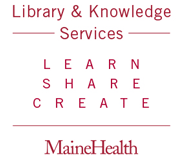Document Type
Poster
Publication Date
4-30-2020
Institution/Department
Maine Medical Center, Medical Education, Maine Medical Center Research Institute, Cardiology
MeSH Headings
Humans, Social Determinants of Health, Heart Failure, Health Status
Abstract
Purpose/Motivation: Our primary goals of “Bridging to the SoDH Safety Net for At Risk Patients with Heart Failure” are to reduce the rate of admissions, readmissions and unnecessary ED visits for high risk heart failure patients by addressing social determinants of health risk factors. Additionally, we aim to provide evidence in support of creating a third-party reimbursement code for services addressing social determinants screening.
Background: Social determinants of health are defined by the World Health Organization as “the conditions in which people are born, grow, live, work and age”. In many ways these factors impact health literacy, morbidity, mortality and quality of life in the face of a chronic health condition such as heart failure. More specifically, our project is focusing on meeting the needs of high risk patients with food insecurities.
Approach/Methods: MaineHealth Cardiology and Southern Maine Agency on Aging have partnered as a project team with support of a Harvard Pilgrim HealthCare grant for 80 patients. Patients were selected based on meeting criteria of having either two ED visits or hospitalizations for heart failure, and showing risk factors in social determinants of health. A primary heart failure nurse navigator has led patient outreach and recruitment through informational mailings and phone calls using the EPIC IT-generated patient list. Once patients have been enrolled, the SMAA outreach team conducted home visits and SDoH assessments, and established a baseline wellbeing score. Healthy Links “Simply Delivered” meals were then delivered to the patients. At the conclusion of the program, patients were re-assessed and given a follow-up wellbeing score. At this juncture, we have enrolled nearly 70 of the 80 patients and are still gathering data on ED visits, hospitalizations and wellbeing scores.
Results: To date, we have reached out to over 153 patients and enrolled nearly 73 patients with SMAA community outreach. After completing the first phase of the program, 16 of the enrolled patients have chosen to continue receiving Simply Delivered meals by private pay, or qualified for Meals on Wheels. We did not anticipate that a high proportion of patients would fail to respond to initial contact in the recruitment process, nor did we foresee that many patients would no longer need this intervention due to transition to skilled nursing facilities, or unfortunately death.
Conclusions: The project has made a positive impact from a subjective standpoint as a high percentage of patients in the first phase have requested to continue services and meal delivery. We anticipate that the project will also reduce unnecessary ED visits, hospitalizations, morbidity, mortality and ultimately enhance quality of life.
Recommended Citation
Riviere, Amy E.; Connelly, Nancy; Green, Jessica; Longarini, Renee; Powers, James B.; Sawyer, Douglas B.; and Cohen, Mylan C., "Healthy Links: Bridging the Social Determinants of Health Safety Net for At Risk Patients with Heart Failure" (2020). Costas T. Lambrew Research Retreat 2020. 99.
https://knowledgeconnection.mainehealth.org/lambrew-retreat-2020/99



Comments
2020 Costas T. Lambrew Research Retreat.
Amy Riviere, DO- Fellow